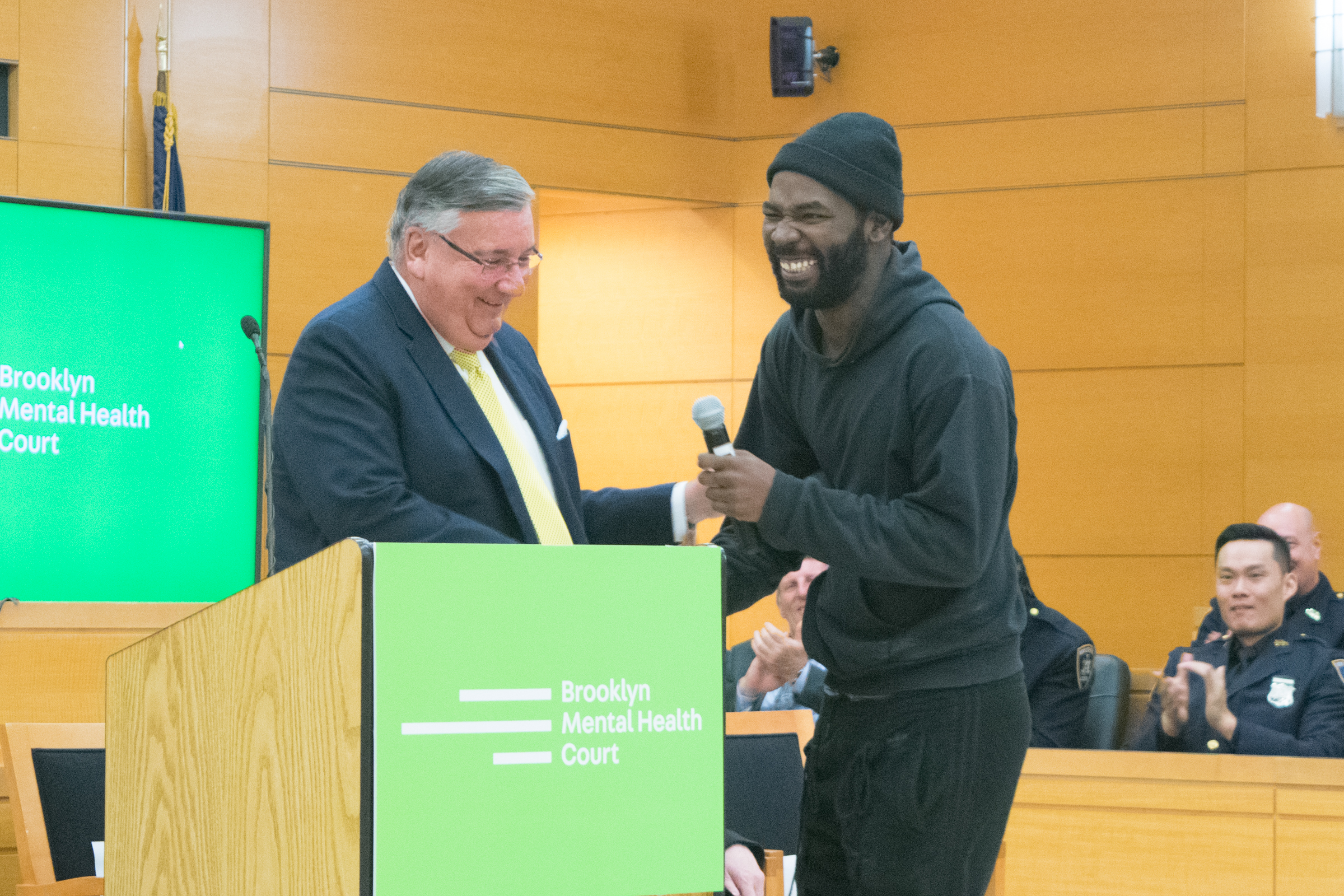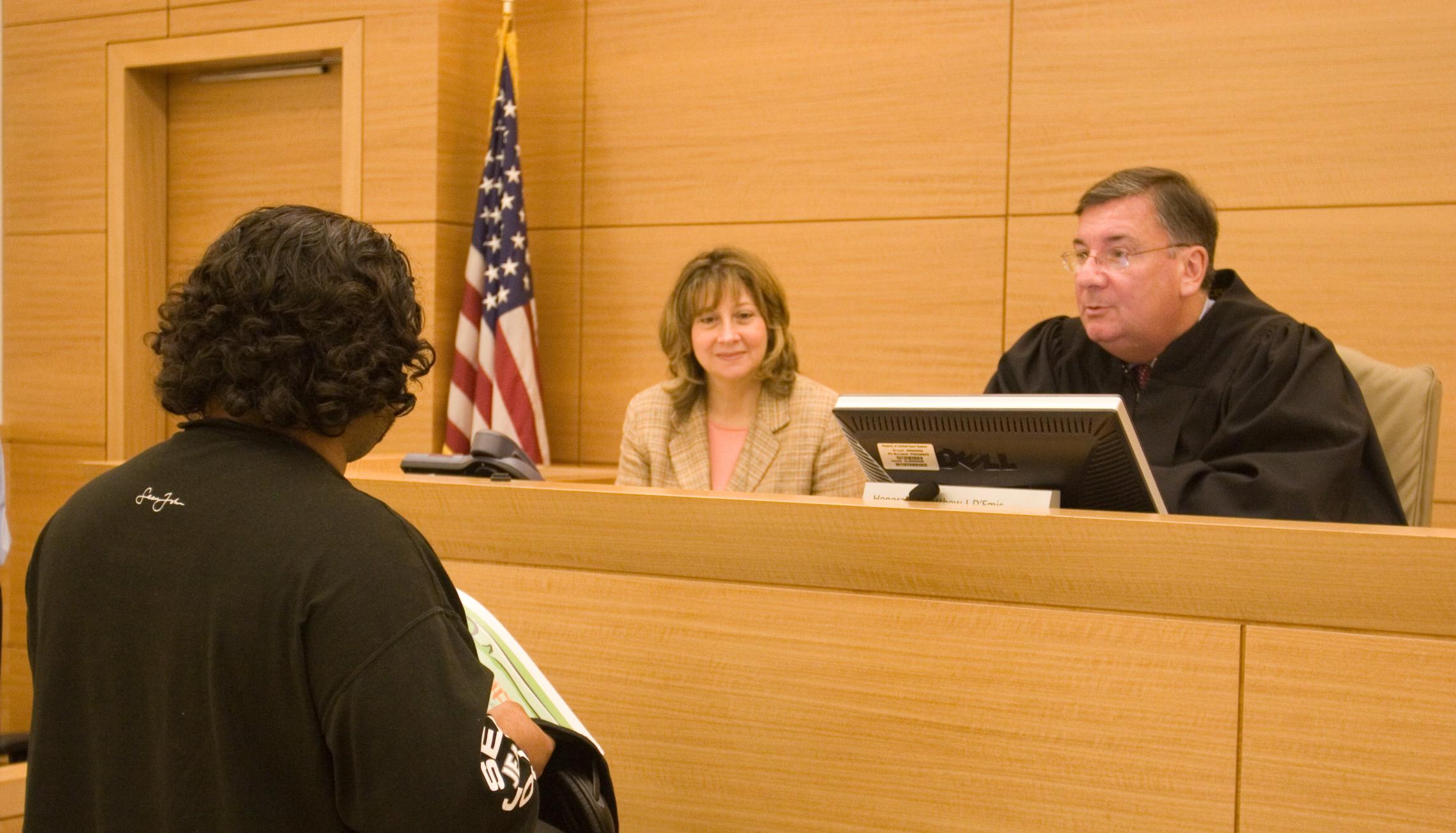
Justice D’Emic serves at BMHC (Photo: Brooklyn Eagle)
According to a published article from the Center for Justice Innovation, the Brooklyn Mental Health Court links justice-involved people with mental illnesses with court-supervised, community-based therapy in an effort to increase safety, court operations, and their general well-being.
Defendants who have a mental illness that is connected to their engagement in the criminal justice system and whose participation in the Brooklyn Mental Health Court will not put the public in greater danger are eligible.
Brooklyn Mental Health Court was created with a focus on regional needs and objectives.
For instance, Brooklyn Mental Health Court was established in areas where Drug Treatment Courts encountered difficulties dealing with clients who had both drug use problems and co-occurring mental illnesses.
The Brooklyn Mental Health Court was established in 2002 to offer therapy to those who committed nonviolent offenses but had major mental illnesses rather than jail time.
According to Kendrick, mental illness is frequently the blame for crimes. Therefore, if we can help folks get back on track and into treatment, we can break the pattern.
More than 1,000 mentally ill individuals, according to the organizers, have so far been successfully diverted from jail to therapy.
Process for offenders in order to receive treatment and not jail time
According to a published article from CBS New York, the process involves a number of phases.
To send a matter to Brooklyn Mental Health Court, both the district attorney and the defense counsel must consent.
Then, a social worker and a psychiatrist conduct evaluations, which include risk assessments.
Third, the defendant is regarded admissible to Brooklyn Mental Health Court if it can be demonstrated that they have a significant mental disease and do not pose a threat to the public.
After then, the district attorney and the defense lawyer agree on a plea bargain that might result in a jail sentence if the defendant doesn’t complete the program.

Brooklyn’s Mental Health Court recognizes 1,000 graduates who were kept out of prison (Photo: Brooklyn Eagle)
The clinical team creates a treatment plan concurrently.
The offender must initially enter a guilty plea to the charges in order to start the treatment plan.
Recently, New Hampshire joined the growing number of states that have established national standards for mental health courts.
READ ALSO: Predictors of Program Compliance and Re-arrest in the Brooklyn Mental Health Court
























